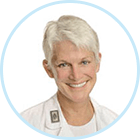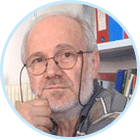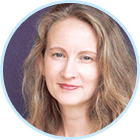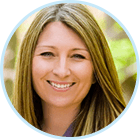


Speakers attending
Seasoned, top-flight healthcare professionals
of global repute will be talking about this food
specially designed for human babies: human milk.
With simultaneous interpreting.
Read on to find out about their careers,
the themes and summaries of their conferences.

Dr. Jane Morton, is a Clinical Professor of Pediatrics at Stanford University, with a distinguished career as a general pediatrician. She is internationally recognized for her contributions to education, research and clinical care in breastfeeding and human lactation. Over the years, she has designed and implemented systems and policies to help breastfeeding mothers. She produced award winning videos on this topic, including
“Breastfeeding: A Guide to Getting Started”,
“A Preemie Needs His Mother: Breastfeeding a Premature Baby”
and “Making Enough Milk, the Key to Successful Breastfeeding”.
These have been translated and widely used in thousands of hospitals to train both staff and new mothers. As an executive board member of both the Academy of Breastfeeding Medicine and the American Academy of Pediatrics Section on Breastfeeding, she enjoyed working to enlarge the footprint of breastfeeding, both nationally and internationally.
For a 5 year period, she joined the neonatology clinical faculty at Stanford to develop the Breastfeeding Medicine Program. In that position, she had the opportunity to design a nationally recognized educational program and publish a study with the AAP on the efficacy of a breastfeeding curriculum for physician residents in training. She was an advisor to the California Perinatal Quality Care Collaborative, and was a key author of the toolkit “Nutritional Support for the Very Low Birth Weight Infant”. She co-authored the book Best Medicine: Human Milk in the NICU. She has published extensively and presented her original research and educational workshops
internationally. She continues to teach at Stanford where she is an Adjunct Clinical Professor of Pediatrics, Emerita.
"Establishing lactation
when mother and baby are separated"
The World Health Organisation, the American Academy of Pediatrics and other organisations reputed for breastfeeding support recommend that mothers learn to express their milk prior to giving birth, for many different reasons.
Naturally, learning this technique can vary from one mother to another, and take varying amounts of time. When the hormone oxytocin peaks, (in the first hour after breastfeeding) it is very easy to express colostrum. Mothers are delighted to see their milk, and research results show that this moment is a window of opportunity to increase the benefits of hand expression.
Actually, hand expression and helping the baby to suckle work well together. The more often the mother expresses her milk, the easier it gets for her, the quicker the milk comes in and the more she produces. Mothers who express their milk by hand can produce up t 80% more milk. Hand expression of human milk should be shown within the first hour after birth to increase the benefits.
Jane Morton adds :
« From Picasso to Steve Jobs, artists and inventors have observed that keeping things simple is one of the best strategies. The key is creating this simplicity, the repetition and logic in a learning environment. Teaching pregnant women about the advantages of hand expression prior to giving birth could address many typical concerns, whatever the outcome. Because the mother handling her breasts is more natural than using a machine, less likely to make her think there is a problem and avoids turning the art of expression into a medical act.»
Top global specialists will be sharing their most recent research at internationally acknowledged conferences.
With simultaneous interpreting

"Duration of exclusive breastfeeding
and introduction of supplements,
what proof do we have?"

"When giving breast milk
is a matter of emergency"

"Epigenetics and breastfeeding.
Potential long-term impact of
breastfeeding"
"Natural, toxic, or ... what?
Breastfeeding and use of marijuana"
For the 10th edition of International Breastfeeding Day, we are honoured to be welcoming Lydia de Raad, who will be sponsoring the event.
COORDINATION IBD 2016,
Françoise-Marie Noguès
francoise-marie.nogues@lllfrance.org